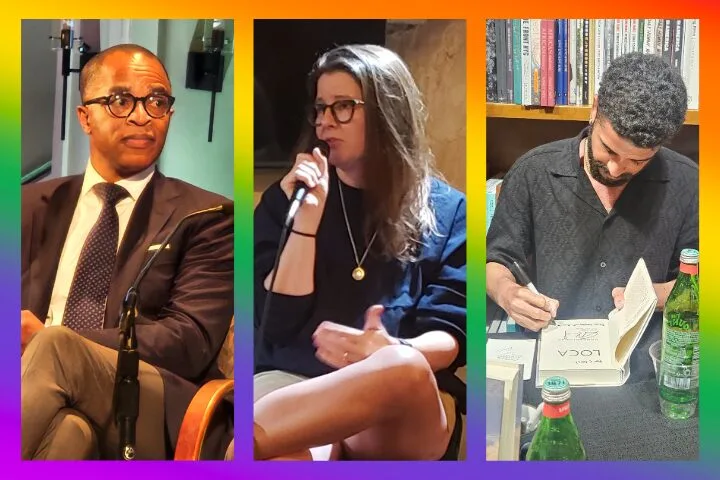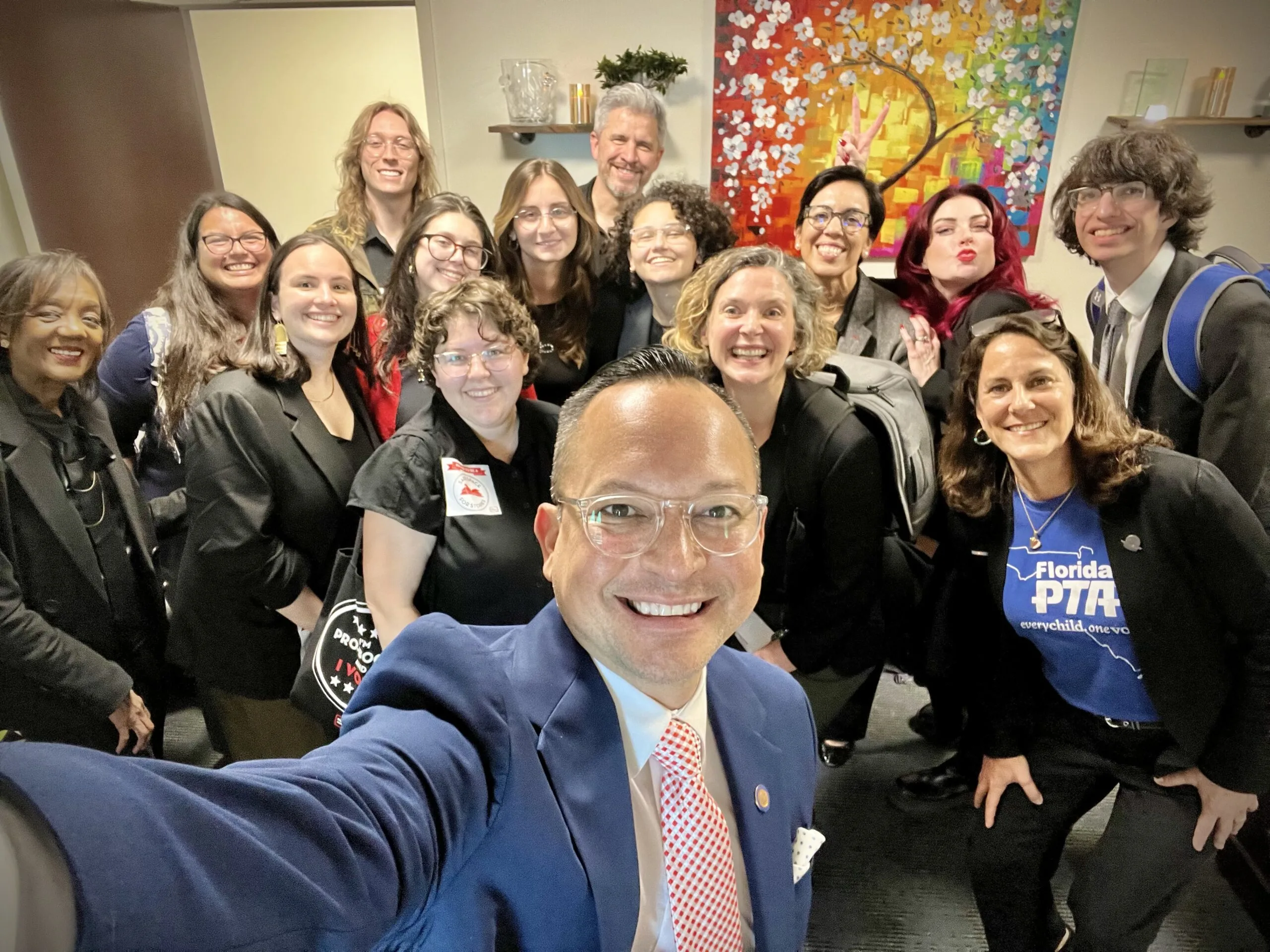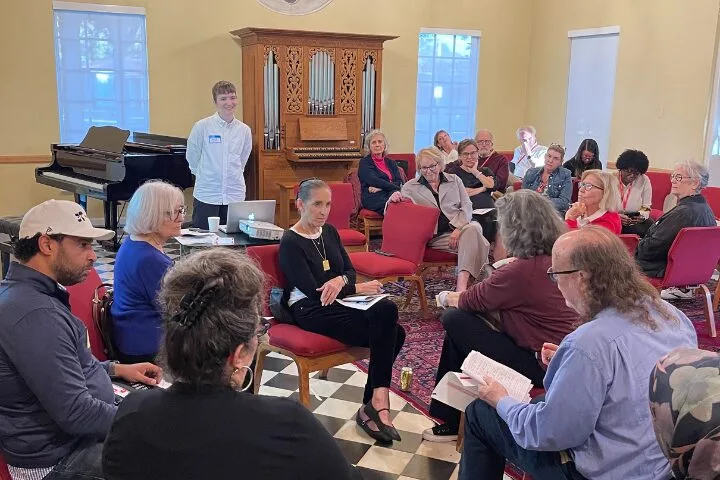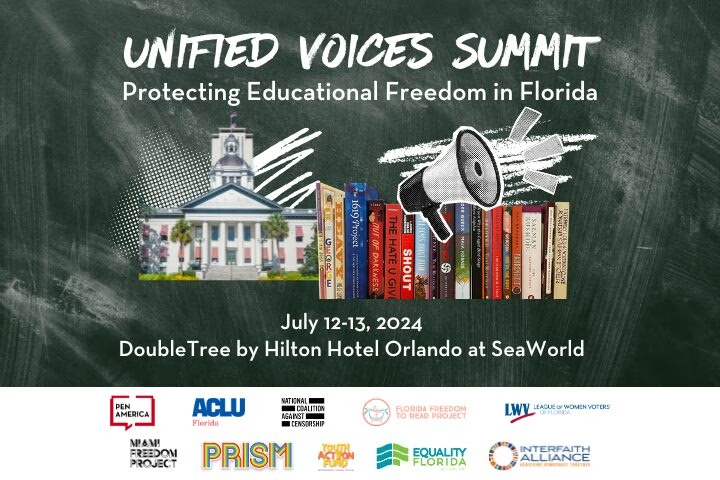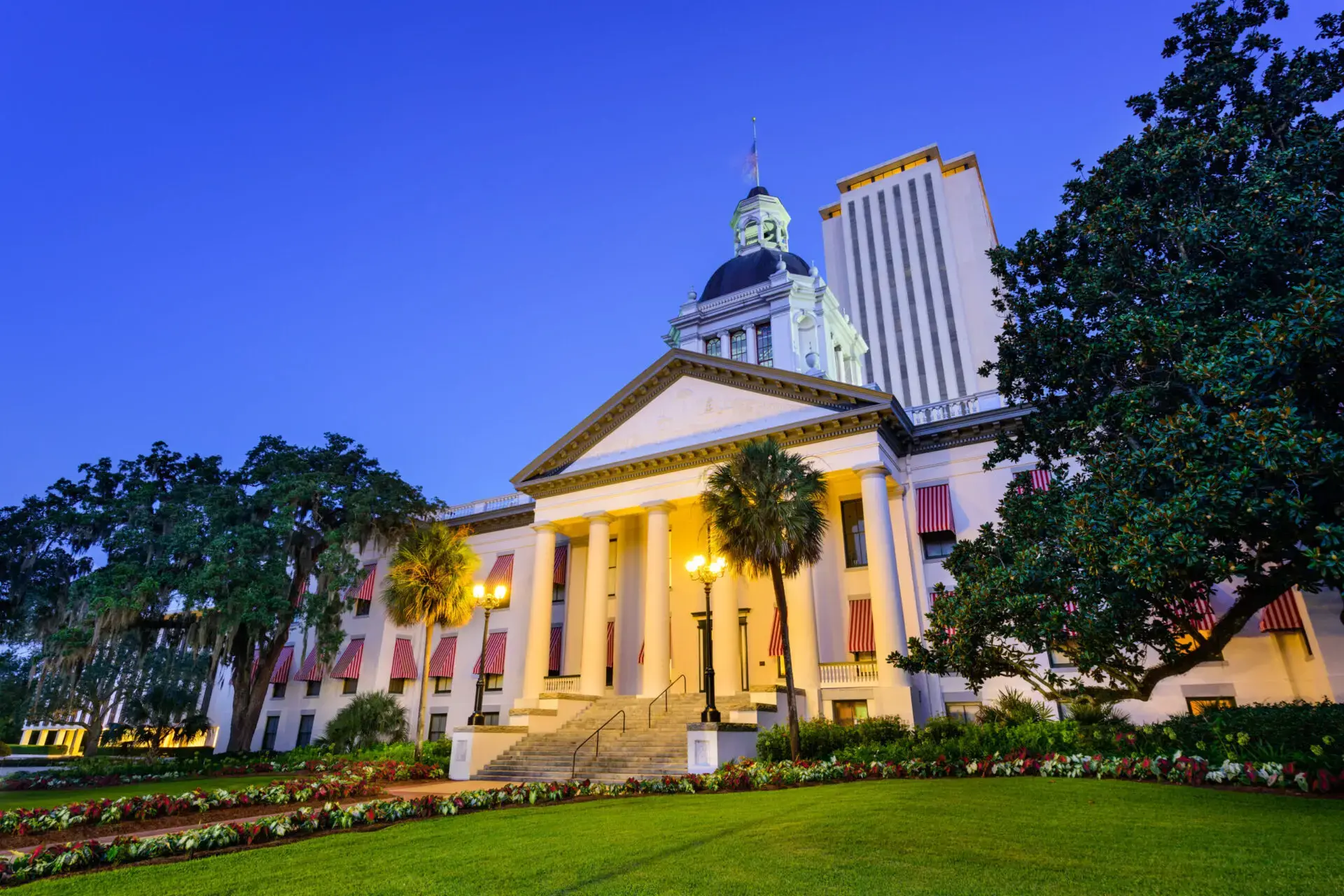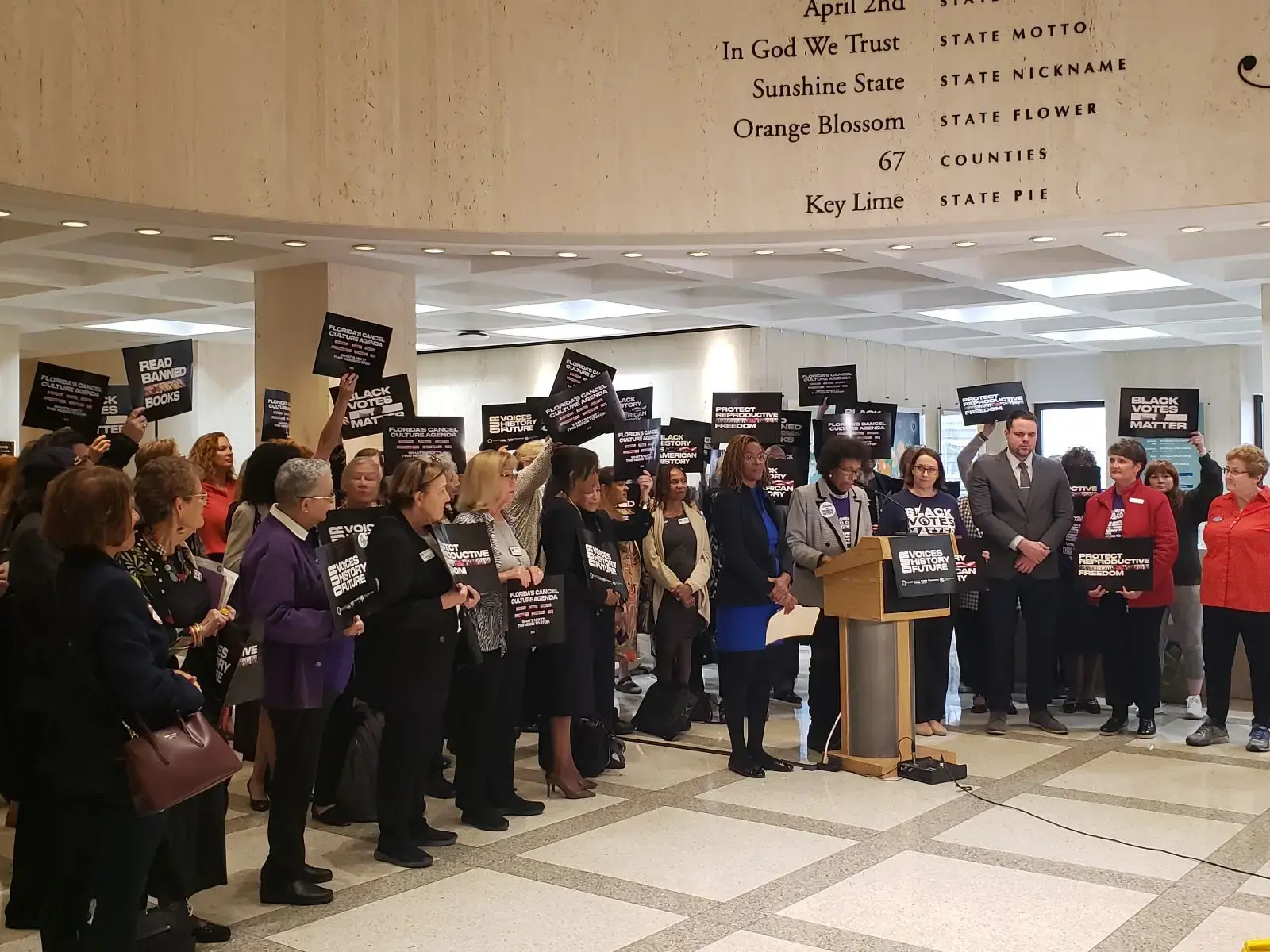
In Florida, the State Board of Education wants the public to believe that schools are filled with obscene materials and that pressuring educators to ban books is both justified and necessary.
At its August 20 meeting, the board leaned heavily on falsehoods, repeating claims that classrooms and libraries are rife with “pornographic” content. In response, a coalition of parents, students, and authors held a press conference to set the record straight.
A summer-long censorship campaign led by the State Board of Education and the Office of Parental Rights began in Hillsborough County, where more than 600 books were pulled from public schools, and spread across Florida. Out of fear of legal consequences, at least nine counties have removed hundreds of books – including titles by Toni Morrison and Judy Blume – most without any formal challenge from local parents, as Florida law requires.
The press conference, organized by the Florida Freedom to Read Project, Families for Strong Public Schools, Authors Against Book Bans, and PEN America Florida, pushed back against the wave of censorship with speakers including bestselling author Kristen Arnett, who serves as the Florida chapter lead of Authors Against Book Bans; William Johnson, director of PEN America Florida; as well as parents and students directly affected by these policies.
“Florida’s leaders talk about preparing us for success. But success doesn’t come from being shielded from knowledge,” said Ishikta Kumari, a student. “It comes from being trusted to engage with it. Without that freedom, our education is incomplete.”
Florida Parent Gamble Scott emphasized the need for all parents to be heard, “Parental rights apply to all parents. I have the right to guide and direct the books my children read. These decisions are not the government’s, not a political agenda’s, and certainly not the prerogative of a small group deciding for everyone what’s ‘appropriate.’”
These comments echo a growing frustration with Florida’s “parental rights” laws, several of which have already faced constitutional challenges. Earlier this month, U.S. District Judge Carlos Mendoza struck down major provisions of HB 1069 (2023), ruling them vague, overbroad, and in violation of the First Amendment.
This ruling and the state response follow a pattern. As PEN America Florida Director William Johnson noted, “Earlier this year, lawmakers attempted to pass HB 1539, a bill that would have dismantled the longstanding Miller Test—a key legal standard protecting books with literary, artistic, or educational value. Although the bill failed, the State Board of Education is acting as if it passed, using social media and intimidation tactics to pressure schools into compliance.”
Parents at the press conference warned of the profound losses that come when books are removed from classrooms and libraries.
“These aren’t dangerous books; they are stories that teach empathy, truth, history, and the richness of our communities,” said Anne Watts, Parent and Families for Strong Public Schools representative.
“Let’s be clear: this has never been about protecting children. It is about shielding kids from the real world—keeping them from learning about the problems that shape our society, from asking questions that lead to solutions, and from understanding and accepting their friends and neighbors.”
“Florida’s students deserve the freedom to read, to think, and to see themselves in books,” she added. “We will not stop until every book is back where it belongs.”
What You Can Do
- Send a letter. Contact Florida state legislators to urge the Joint Administrative Procedures Committee to hold an accountability hearing. Send an email here.
- Support the organizations leading the fight. Contribute to and follow PEN America and the Florida Freedom to Read Project, as well as others working to protect the right to read. Local organizations provide vital updates on the state of censorship in Florida, as well as strategies to fight back.
- Call your friends and family in Florida. Let them know what is happening in Hillsborough County and across the state. Encourage them to speak out and stay informed.
- Contact your local school district. Tell them you support all educators, including media specialists. Let them know you trust their professional judgment and appreciate the importance of maintaining a diverse range of books on the shelves.
- Speak up at school board meetings. If you live in Florida, your voice matters. Attend local meetings, submit public comments, and make it clear that censorship is not the will of the majority.
- Share on social media. Use your platform to raise awareness. The more people who know, the harder it is for these decisions to happen quietly.

